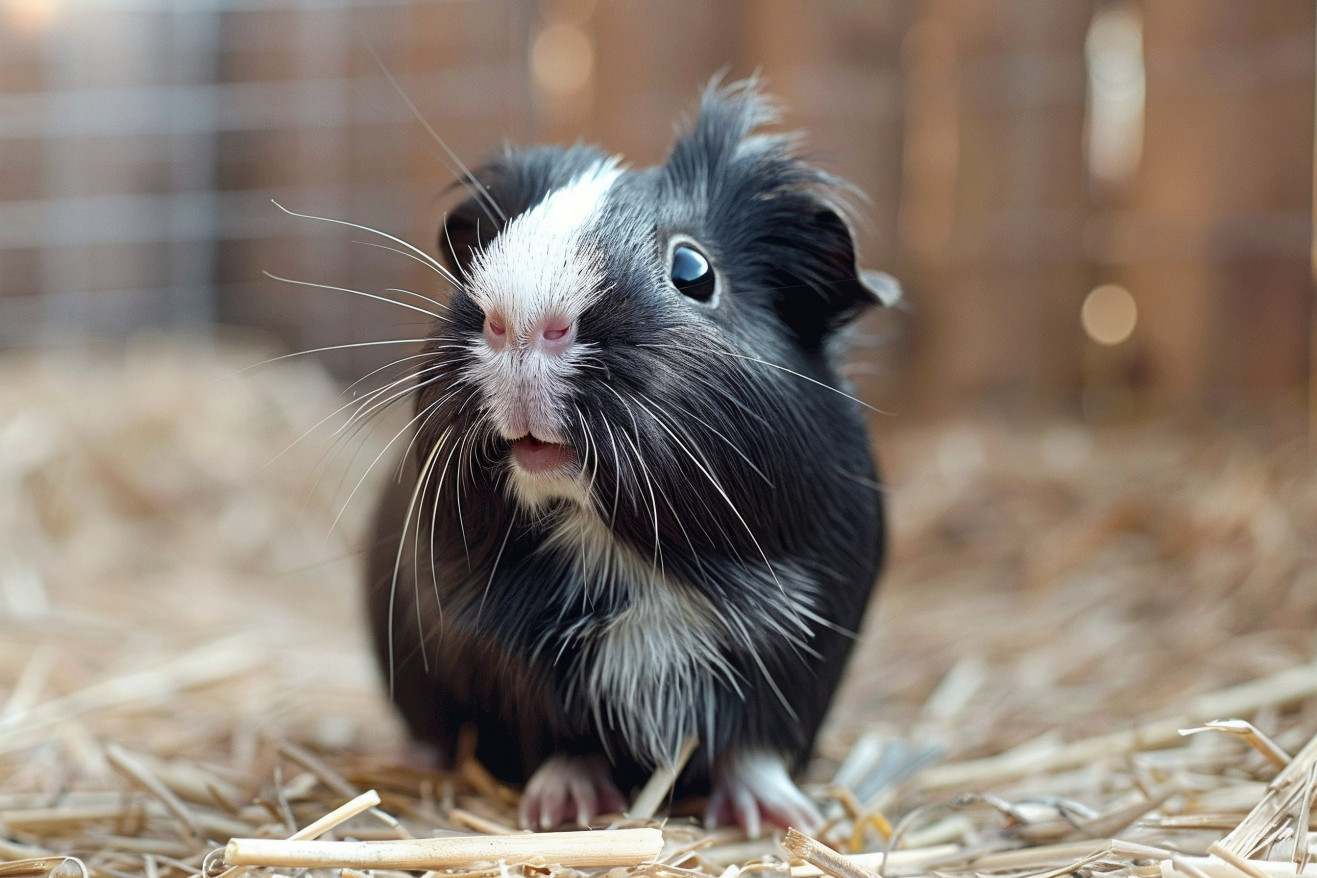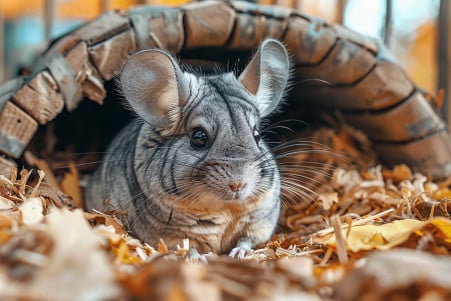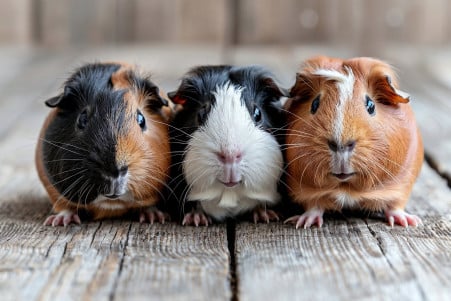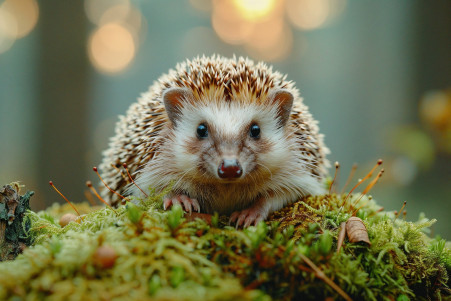Why Do Guinea Pigs Smell? The Science Behind Their Odor
12 March 2024 • Updated 11 March 2024

Even though guinea pigs are known for their adorable behavior, you may be concerned about the potential for them to smell. However, guinea pigs themselves don’t have a natural smell. Instead, it’s their living conditions and even health problems that can lead to a stinky situation.
Regularly cleaning their cage, using the right kind of bedding, and feeding them a healthy diet can all help to keep your guinea pig smelling fresh. It’s also important to make sure you’re keeping an eye on their health, as some health problems can lead to a guinea pig smelling.
To get to the bottom of why guinea pigs smell, we’ll be looking at a variety of pet care studies. This will include everything from veterinary research on common health problems to expert opinions on grooming and hygiene to how a guinea pig’s diet can impact their smell. By the end of this article, you’ll have a better understanding of how to make sure your pets are just as fresh as they are fun.
Why do guinea pigs smell?
Medical Conditions That Cause Odors in Guinea Pigs
There are several medical conditions that can lead to guinea pigs smelling bad. The Exotic Animal Hospital explains that dental problems, including incisor and cheek teeth malocclusion, can lead to drooling and the production of small, hard fecal droppings, which can contribute to a smelly cage.
Mites, lice, and fungal infections, like ringworm, can also lead to skin issues, which not only affect the skin of guinea pigs but can also be passed on to humans, so it’s important to get professional testing to avoid smelly side effects.
Respiratory and urinary infections are also common causes of odor. According to the Merck Veterinary Manual, nasal congestion can lead to thick nasal discharge and labored breathing, and bladder infections can lead to smelly urine. If not treated, these conditions can make a guinea pig’s cage smell worse.
Regular vet visits are important for catching and treating odor-causing medical conditions. PDSA explains that early detection and treatment can help prevent these problems from getting worse and leading to more serious issues that could make the guinea pig’s odor worse. Keeping up with a regular care routine for your guinea pig will help keep them healthy and keep their environment smelling fresh for both you and them.
Diet and Guinea Pig Smell
When it comes to keeping guinea pig smells under control, diet is key. VCA Animal Hospitals explains that a guinea pig’s diet should be high in vitamin C and fiber to promote good digestion and prevent diseases that can cause odor. Vitamin C is especially important for guinea pigs since, just like people, they can’t make it on their own; a deficiency can lead to problems like scurvy, which can cause bad smells.
VCA Animal Hospitals recommends a balanced diet that includes unlimited timothy hay, vitamin C–fortified pellets, and fresh, vitamin C–rich leafy greens.
PDSA adds that a lack of fiber can lead to dental and digestive problems, which can cause issues like diarrhea that can impact the cleanliness and smell of the cage. Fresh vegetables like bell peppers and asparagus should be included in the diet, while fruit should be fed in moderation due to its high sugar content.
By making sure that a guinea pig’s diet is well-rounded, you can help control how much waste they produce and reduce the likelihood that you’ll have to deal with smells. It’s also important to make sure that your guinea pig has access to fresh, clean water. By making sure that your guinea pig’s diet is well-rounded, you can help ensure that your pet is healthy and that your living space smells fresh and clean.
Grooming and Hygiene Routines for Odor Control
To keep your guinea pig smelling good, you’ll mostly need to stick to a regular grooming schedule and stay on top of keeping their cage clean. The Spruce Pets suggests that you make sure to trim your guinea pig’s nails at least once a month to avoid any overgrowth and the problems that come with it, as this is a basic part of their care.
Make sure that you’re using the right clippers and that you’re careful not to cut the quick, which will cause pain and bleeding and therefore odors.
Grooming is also important when it comes to their coats; short-haired guinea pigs should be brushed once a week, while long-haired guinea pigs will need daily attention to avoid matting and to catch any skin problems. PetMD points out that grooming is about more than just looks—it’s also important for catching any health problems that could lead to odors if they’re not taken care of.
Of course, keeping your guinea pig’s cage clean is also important. A clean cage will help keep odors to a minimum, and you’ll need to make sure that you’re changing the bedding regularly and doing spot cleans as needed.
Bathing should be a last resort, as guinea pigs are good at keeping themselves clean, according to GuineaDad. If you do need to bathe them, make sure that you’re using a guinea pig-safe shampoo and that you’re drying them thoroughly to avoid them getting sick or developing mold.
By following these routines, you’ll not only keep odors at bay but you’ll also help keep your guinea pig healthier and happier by making sure that they’re living in a clean and comfortable environment.
The Smell of a Guinea Pig: What Their Natural Scent Means
Guinea pigs have a natural scent that is not unpleasant. A guinea pig owner, as quoted in a Kavee Cage article, says that guinea pigs have a light, sweet smell that is often described as similar to the fresh scent of hay and grass.
This natural smell comes from their scent glands and their grooming behavior, which is more common in males. The type of bedding used can also impact a guinea pig’s smell, with wood shavings potentially creating a different smell than fleece liners, as the same guinea pig owner points out.
The context of the smell is also important. GuineaDad explains that quality bedding like their fleece liners, which are made to be super absorbent and quick-drying, can help control the natural smell by preventing waste from building up. Meanwhile, smells that come from a lack of care or health issues can be especially bad if they are not addressed, and they will smell very different from a well-maintained environment.
Comments from guinea pig lovers show the importance of understanding and controlling a guinea pig’s natural scent. It’s important to be able to tell the difference between the sweet, natural smell of a guinea pig and smells that indicate a problem.
In Conclusion: What You Need to Know About Guinea Pig Smells
As we’ve learned, guinea pigs are naturally odorless animals. Instead, the smell of a guinea pig is a direct result of the care it’s given. Good pet care, which includes regular veterinary visits, a healthy diet, and proper grooming, is key to keeping smells at bay. After all, a healthy guinea pig is an odorless one.
The fun of caring for guinea pigs goes beyond the time you spend with them and includes making sure that their living space is clean and healthy as a sign of your care. This means keeping their living space clean, making sure they’re getting the right nutrients in their diet, and keeping an eye on their health.
So, let’s end with this important note: the fun of having guinea pigs is two-fold—a happy, healthy guinea pig and a clean, odor-free home. Your dedication to good care will ensure that your guinea pig is only spreading happiness and not smells.


